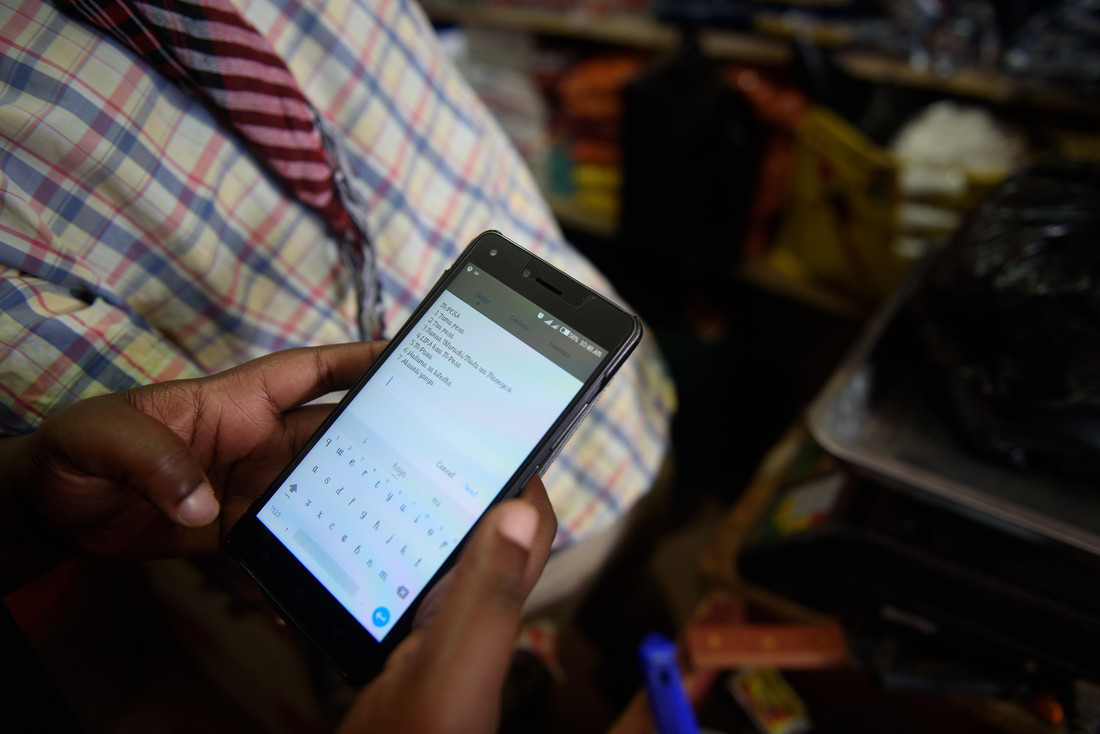
Young Kenyan Entrepreneurs Adopt Digital Platforms during COVID-19
The onset of the COVID-19 pandemic in Kenya resulted in the decline of sales and closure of many small businesses, especially those that are female-owned. However, young entrepreneurs in Kenya are using digital platforms to sustain their businesses and earn a living.
Digital platforms are changing how young people find and do work and how small enterprises and farmers connect with markets. New research by Caribou Digital and Qhala, in partnership with the Mastercard Foundation, examines how digital technology is being used to build new value chains that allow youth to earn a livelihood. “Platform Livelihoods” explores the quality of Kenyan youth’s digital experiences, particularly their responses to and resilience during the COVID-19 pandemic. This study highlights how the pandemic increased the use of digital platforms by young entrepreneurs across four sectors – logistics, e-commerce, agriculture (farmers) and creative industries.
Using digital platforms to sell farm commodities during COVID-19
According to the study, an increasing number of young farmers in Kenya transitioned from traditional markets to online marketplaces and social media platforms to sell their farm produce to a wider market due to COVID-19 lockdown measures. The digital platforms provided the avenue for farmers in Kenya to create their own customized online market or serve as a ‘digital middleman’ – to collect produce and digitally sell them on behalf of the farmers. Some of these digital platforms include less expensive social media and messaging platforms – Facebook, Instagram, WhatsApp, etc. The study argues that the “more skills farmers have in these digital platforms, the better their chances to build a sustainable business.”
“It is easier for youth to use digital technology, as they are more tech savvy in terms of how they maneuver these platforms. Right now, farming is dominated by the aged and the participation of the youth will open up the sector. We see the youth using digital technology, not only for marketing but for learning which is key in transforming the sector.” Phelix Rapando, Mastercard Foundation
Nevertheless, young farmers faced significant challenges, including unreliable clients who express interest online to purchase agricultural commodities but do not show up to pay and receive the items.
“When someone tells you they want a tray of eggs, not really stealing but being lied to. They want like two or three trays of eggs for about KES 2,300. You keep the eggs aside and wait for them, that person doesn’t send any money. But you still think you have a customer coming for the eggs. It’s like having no trust in someone so I’d rather have a phone call that usually translates to sales rather than messages or chats. They may make a down payment for something so that you’re sure they are committed to buying something.” Neema, 27, Farmer (Chicken)
Other stakeholders who participated in this study acknowledged that digital platforms create visibility to the agricultural value chain and fosters inclusion in the farming sector.
Social Media Platforms as an alternative medium for artists to showcase their work
In Kenya, the creative industry faced difficulties during the COVID-19 pandemic, but young artists found innovative ways of showcasing and earning from their work. Young musicians and visual artists who participated in this study said they use digital platforms to create, distribute and sell their work. For example, musicians relied on local and international formal digital platforms (Spotify, Mdundo, Angaza Music, Boomplay, etc.) and social media channels (Facebook, Twitter, WhatsApp, etc.) for streaming live concerts, paid digital downloads to engage with their audience.
While musicians had several digital platforms to distribute, monetize, increase awareness, and build a fan base, visual artists had limited platforms to sell their work in Kenya. Some visual artists use social media channels to showcase their work to create more awareness and sell to clients, but this does not translate into a significant increase in purchases.
Though social media platforms help young artists promote their work, they still face challenges, including copyright and lack of legal protection. Also, women musicians were excluded from the production and distribution processes, making it difficult for female artists to thrive in the industry.
“Because you go to the studio, you record nicely and you’re done, then you get off. They tell you the song will take a week. After one week you call, they invite you for lunch, and they begin the tussle. You decide to leave that song there. You go do it somewhere else. It goes through. And then you go to do the video, you go through the same thing. So, you get so tired until you wish there were female producers.” Sue, 27, Musician
The report outlines the experiences of workers and sellers in these platform livelihood sectors and draws lessons on the platform economy. It also highlights how people’s livelihoods in each sector are being impacted by digitization and the rise of digital platforms.


